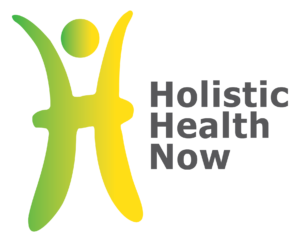
pediatric EndoCannabinoid System (ECS) Management
Pediatric Medical Cannabis: Customized Care for More Than Just Migraines, Crohn’s, and Autism
An individualized approach to medical cannabis is important for maximizing patient wellbeing, especially in pediatric medicine. This program emphasizes the value of patient health, patient and caregiver knowledge, and advocacy within the neonatal medical field with a focus on reducing symptoms of a variety of conditions, including but not limited to Autism, Crohn’s disease, or migraine headaches.
Relevance of the endocannabinoid system to children:
We have researched the endocannabinoid system’s (ECS) contribution to pediatric health and its impact on preserving physiological balance in children. Medical cannabis may be beneficial for children with Autism, Crohn’s disease, migraines, and a variety of other categorically complex conditions because the cannabinoid receptors CB1 and B2 have been linked to neurodevelopment, immune function, pain modulation, among other things.
Pediatric safety and dosing considerations:
Precision dosing is crucial in pediatric medical cannabis therapeutics. Dosing choices must be influenced by the child’s age, weight, severity of one’s condition, and personal response. Pediatric patient safety is ensured by a gradual titration strategy that begins with low doses, while parents or caregivers closely chart and monitor for side effects while reducing the risks associated with integrating medical cannabis therapeutics.
Doctor Supervision Is An Essential Function:
Implementing cannabinoid and cannabis therapeutics for children must also be closely monitored by a physician. Specialized neonatal cannabinologists provide individualized instruction that is tailored to the specific needs of pediatric patients because they are experts in pediatric conditions and integrating cannabis treatment protocols. Pediatric cannabinologists maintain healthy integration into the child’s care program by working closely with the pediatric medical staff, and promoting their participation at every phase.
Providing Parents and Caregivers with Clear Treatment Plans:
In pediatric cannabinology, and integrating medical cannabis therapeutics, it’s crucial to give parents a clear and thorough treatment plan. This strategy outlines one’s treatment objectives, preferred administration strategies, and anticipated results for treating pediatric patients conditions, and while ‘autism, Crohn’s and migraine symptoms come to mind, there are a variety of conditions that cannabis can address. Regular check ups, follow-up appointments and open communication make it easier for parents to actively participate in their child’s healthcare journey by facilitating ongoing communications between the health care team, while monitoring for changes and other treatment plan adjustments.
Obtaining Reliable and Clean Medicine:
Accessing clean, trustworthy medical cannabis and/or hemp is essential for ensuring the safety of pediatric patients; toxins are very real and can be detrimental to the patient. If one cannot point towards rigorous quality control measures, including third-party testing for purity and potency, they are willfully disregarding their duties and obligations to safeguard pediatric patients from potential contaminants and related risks and harms. Pediatric cannabinologists guide parents and caregivers in selecting reputable sources and strains/cultivars tailored to their child’s medical needs, prioritizing the child’s safety and wellbeing above all else.
In summary, pediatric medical cannabis counseling requires a specific strategy centered on individual safety, education, and communication. By understanding the ECS’s neonatal relevance, implementing specific dosing strategies, ensuring vigilant doctor supervision, empowering parents with evident treatment plans, and accessing fresh medicine, pediatric patients with autism, Crohn’s, migraines and a variety of other conditions can receive the maximum care and symptom relief available in their local market. Advocating for pediatric patients within the medical team ensures comprehensive and compassionate treatment for the pediatric community.
- Specialized Pediatric Cannabis & Cannabinology Care
- Professional Education on Significance of the ECS
- Precision, Targeted Dosing Considerations
- Specialty Physician Supervision
- Empowering Parents & Caregivers
- Reliable, Evidence Based Solutions
What Does Compassion Center Offer for Pediatric ECS Management?
Both Compassion Center and IntegrativeECS provide integrative cannabinology, whereas IntegrativeECS provides a comprehensive program that includes the entire healthcare team, allowing Compassion Center and IntegrativeECS specialists to improve patient outcomes.
Where All Does Compassion Center Work, And Are Medical Cannabis Recommendations Available Everywhere?
Nationally, depending on the particular professional service that you seek. 18 States for medical cannabis evaluations and recommendations. Compassion Center has been moving in the direction of total human wholeness since our founding in 2001, emerging as one of the first medical cannabis clinics to integrate restorative yoga and deep-tissue massage with all-natural pain management solutions for an improved outcome.
Does Medical Cannabis Negatively Impact Pediatric Patients?
Medical cannabis can potentially have negative impacts on pediatric patients, particularly if not used appropriately or under medical supervision. Here are some potential risks and concerns:
Impact on Brain Development: The developing brain of pediatric patients, especially adolescents, may be vulnerable to the effects of cannabis. Specifically, THC, the main psychoactive component of cannabis, can interfere with cognitive function, memory, and executive functioning, potentially affecting academic performance and long-term brain development.
Psychiatric Effects: There is evidence to suggest that cannabis use in adolescence may increase the risk of developing psychiatric disorders, such as schizophrenia, bipolar disorder, and depression. Pediatric patients with a predisposition to these conditions may be particularly susceptible to the negative psychiatric effects of cannabis.
Respiratory Effects: Inhalation of cannabis smoke can irritate the lungs and airways, leading to respiratory symptoms such as coughing, wheezing, and bronchitis. Pediatric patients with respiratory conditions, such as asthma, may be at increased risk of exacerbations with cannabis inhalation.
Adverse Cognitive and Behavioral Effects: Chronic cannabis use in pediatric patients has been associated with adverse cognitive and behavioral effects, including impaired attention, concentration, and motivation. These effects can impact academic performance, social interactions, and overall functioning.
Risk of Dependency and Addiction: Pediatric patients using cannabis chronically or at high doses may be at risk of developing dependency and addiction. Cannabis use disorder can have significant negative consequences on physical and mental health, as well as social functioning.
Interaction with Medications: Medical cannabis may interact with other medications that pediatric patients are taking, potentially altering their efficacy or increasing the risk of adverse effects. Healthcare providers must carefully monitor for drug interactions and adjust treatment plans accordingly.
Legal and Ethical Concerns: The use of medical cannabis in pediatric patients raises legal and ethical considerations, as it remains a Schedule I controlled substance at the federal level in many countries. Pediatric patients and their families may face legal repercussions or stigma associated with cannabis use, impacting access to healthcare and social support.
Overall, while medical cannabis holds promise as a therapeutic option for pediatric patients with certain medical conditions, it is essential to approach its use with caution and under medical supervision. Pediatric patients and their families should weigh the potential risks and benefits of medical cannabis carefully, considering alternative treatments and consulting with healthcare providers knowledgeable in pediatric cannabinology.




